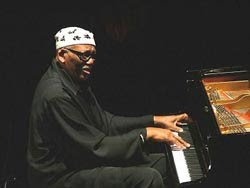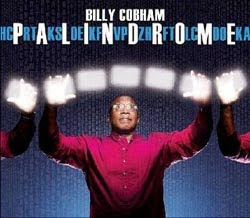Randy Weston Comes to the Jazz Heritage Center

After contributing six decades of musical direction and genius, Randy Weston remains one of the world's foremost pianists and composers today, a true innovator and visionary. Encompassing the vast rhythmic heritage of Africa, his global creations musically continue to inform and inspire. "Weston has the biggest sound of any jazz pianist since Ellington and Monk, as well as the richest most inventive beat," states jazz critic Stanley Crouch, "but his art is more than projection and time; it's the result of a studious and inspired intelligence... An intelligence that is creating a fresh synthesis of African elements with jazz technique". In partnership with the Museum of the African Diaspora, the Jazz Heritage Center will present a weekend focused on the life and music of jazz legend Randy Weston. The Jazz Heritage Center will be showing two films about Randy Weston's life and will be featuring him in conversation with legendary jazz radio per
